Farming with livestock, and neighbors
07-26-2019 in Article
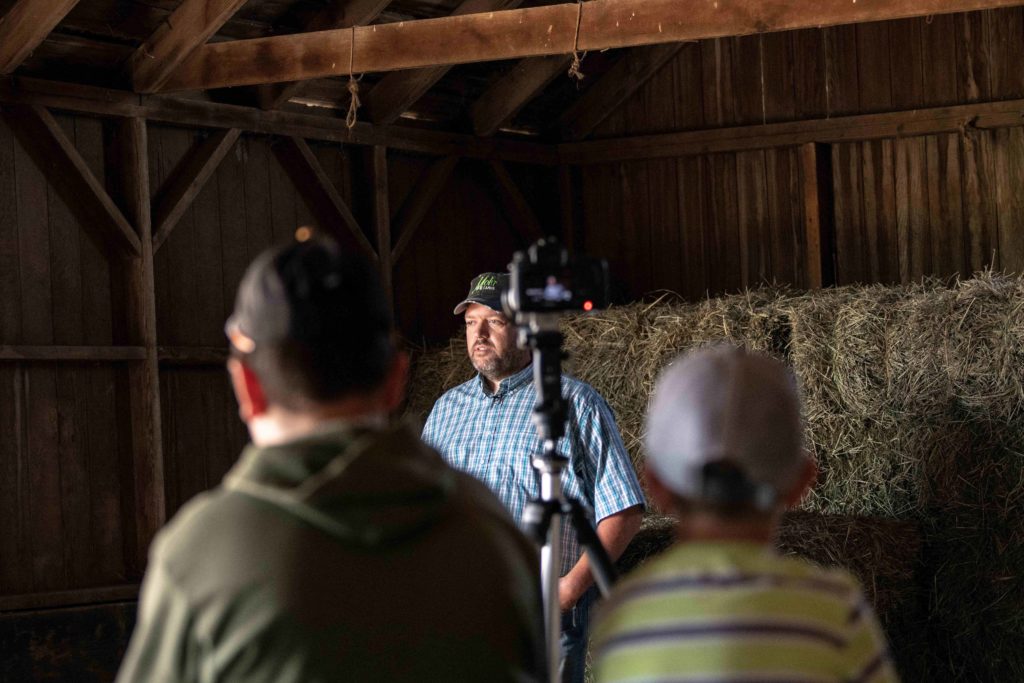
WEST DES MOINES, IOWA – July 26, 2019 – At age 45 Matt Raasch is living the dream. He farms 500 acres of row crops, helps his parents farm another 500 acres, and raises hogs – all in the Northwest Iowa area his ancestors settled more than a century ago. 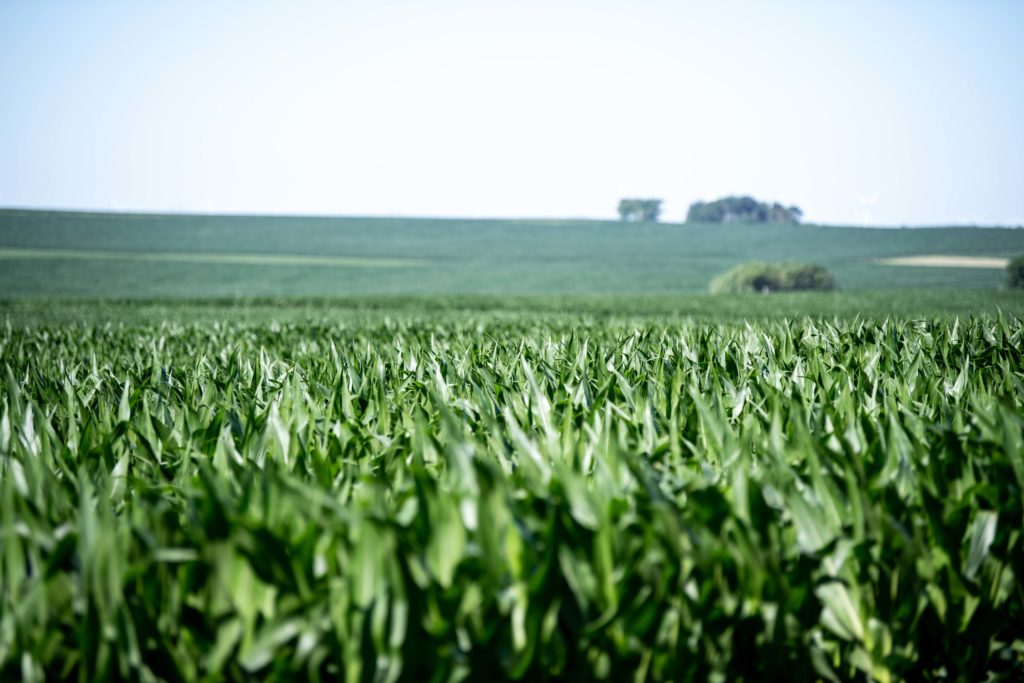
There’s even a patch of pasture for his two sons’ 4-H sheep.
“We may not have the prettiest yard,” says Raasch, “but I like to think we are an example of how to get along with our neighbors.”
With the help of the Coalition to Support Iowa’s Farmers, Raasch erected a 2140-head wean to finish hog barn on his farm five and one-half years ago, in an area where there are six residences within one mile. 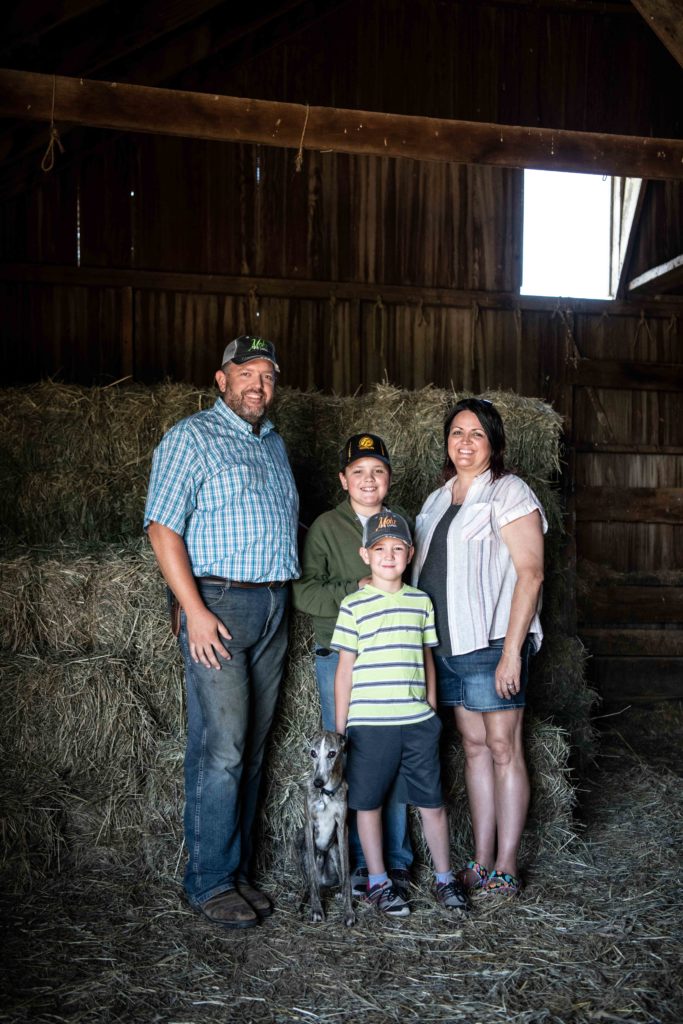
“We had to make sure we did it right,” says Raasch, both in the permitting and siting process, and in neighbor relations. “We needed our neighbors to understand upfront what our plans were and the potential impact to their business and livelihood.”
One concern specific to his situation was a neighbor with an outdoor garden wedding venue. “Understandably, they were the most concerned,” he says. They have told him since their concerns have not come to pass.
Asking for help
The Raasch family has always raised hogs. Matt’s dad has a 4,500-head feeder to finish operation, with a building built before the days of the Coalition.
Matt was familiar with CSIF through his involvement on the Sac County Farm Bureau board and from magazine and newspaper ads.
“The one slogan that stuck with me was ‘Don’t go it alone’,” he says. “I didn’t want to be solely responsible for meeting all the rules and regulations. So I called CSIF.”
CSIF Senior Field Coordinator Kent Mowrer suggested Raasch personally visit with every neighbor within a 1-mile radius before he started building, not to ask their permission, but to share his plans. He came out several times and joined Raasch in talking to the neighbors, calmly explaining how the topography affects the air flow patterns and how the odor could sometimes settle in the bottom on a cool summer night, and assuring them even at that they would very rarely smell the hogs.
“He has a way of telling without preaching or obviously teaching,” says Raasch. “He just does it in casual conversation.”
To further avoid problems, Raasch worked with the CSIF Green Farmstead Partner Program, planting a windbreak of two rows of Austree hybrid willows along the north and east sides (where the main fans are). “Along with a visual screen, the trees create a vapor barrier that lifts the air up, where it dilutes the odor and dust by mixing with fresh air,” he explains. He has since planted an additional windbreak on the other side of the drive for wind and snow control.
CSIF was able to provide some funding for his 180 trees, along with the initial consultation and the connection to a program landscape professional.
CSIF and Raasch hosted an Open House at the site in November 2013, inviting friends and neighbors in to further include them in the process and answer any additional questions.
Farming with livestock 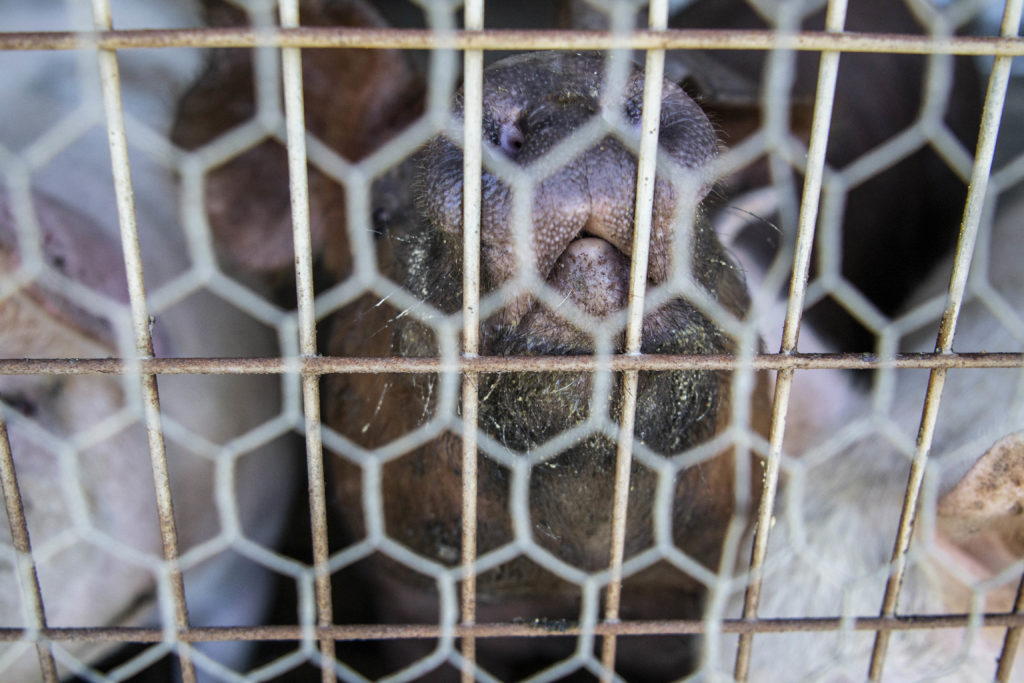
For Raasch, like many farmers, livestock is the key to his profitability. “I couldn’t make it without livestock,” he says, “at least not as easily. I would likely be supplementing with a job in town. The hogs provide cash flow and have supported my family through some tough farming years.”
He and his dad share equipment and labor to make ends meet, and apply the hog manure to their crop ground to save fertilizer expense and keep the farming operation sustainable. “We grow the corn, feed it, the hogs process it, and we apply it to the field. It’s the ultimate in sustainability. We haven’t purchased commercial fertilizer in 20 years. We get all our potassium and phosphorous from the manure.” The Raasch’s plant in a two-year crop rotation, applying nutrient every other year prior to the corn crop.
He says many people have misconceptions about that, and about their comparisons to the old ways. “I remember when we would fill those dry spreaders as full as can be and the manure would fall off all the way to the field. Then Mom would drive through it and track it into the garage. Neighbors would drive through it on the road and take it home to their place.”
It’s one of the things about modern agriculture many people misunderstand. “Raising hogs this way is so much more efficient than the way it was done 40-50 years ago,” says Raasch. “Crop farming is too, but you can’t condense the farm ground so people don’t see it. That’s why the conversations are so valuable. Much of the opposition comes from people who just don’t understand.”
Raasch says he has no plans for further expansion, though touring a new barn and seeing the facility advancements does whet his appetite. But, he’ll leave decisions about the future to his boys. The 11-year-old seems hooked, joining in the hog barn activity whenever possible.
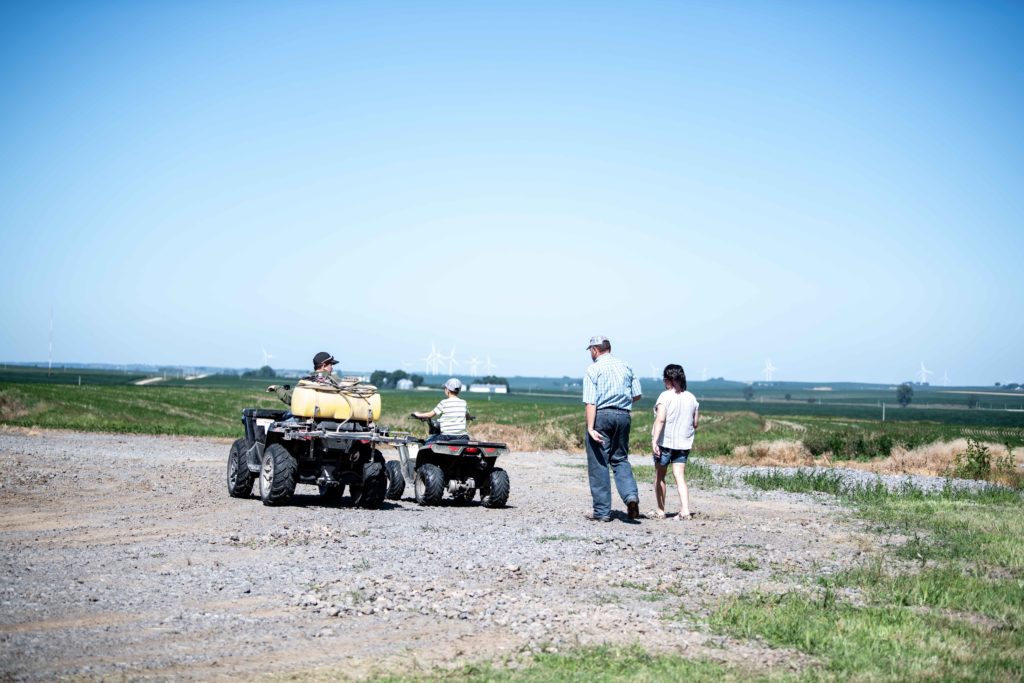 Working with CSIF to create a firm foundation for the family business keeps his options open.
Working with CSIF to create a firm foundation for the family business keeps his options open.
“I have really enjoyed working with them,” says Raasch. “They were willing and able to do anything we asked of them. And the best part is it was all free of charge. With their help, we have been able to be an example of how you can have a livestock facility in a fairly densely populated area and everyone gets along fine.”
The Coalition to Support Iowa’s Farmers was created by farmers to help farmers raise livestock successfully and responsibly. It’s a partnership involving the Iowa Beef Industry Council, Iowa Cattlemen’s Association, Iowa Corn Growers Association, Iowa Farm Bureau Federation, Iowa Pork Producers Association, Iowa Poultry Association, Iowa Soybean Association, Iowa Turkey Federation and Midwest Dairy Association. The non-profit, non-partisan organization aids farmers at no cost. CSIF does not lobby or develop policy. Farm families wanting a helping hand can contact the coalition at 1-800-932-2436.
(By Terri Queck-Matzie for CSIF. Queck-Matzie is a freelance writer from Greenfield).
-30-
Recommended News
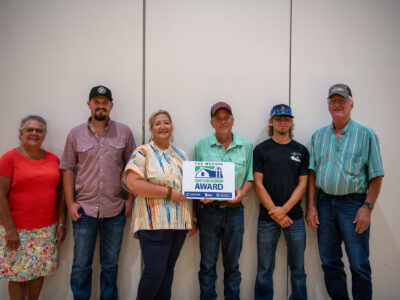
Decatur County cattle and crop farmers recognized for their commitment to conservation, animal care, and community involvement
Iowa Secretary of Agriculture Mike Naig will present the Wergin Good Farm Neighbor Award to the Tim and Cindy Kaldenberg Family of Monroe County on Thursday, July 3. The presentation...
Read More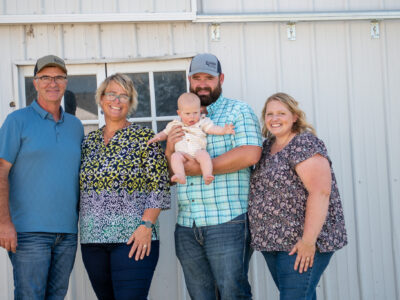
Eighth generation Monroe County crop and livestock farmers are leaders for Iowa agriculture locally and globally
Iowa Secretary of Agriculture Mike Naig will present the Wergin Good Farm Neighbor Award to the Tim and Cindy Kaldenberg Family of Monroe County on Thursday, July 3. The presentation...
Read More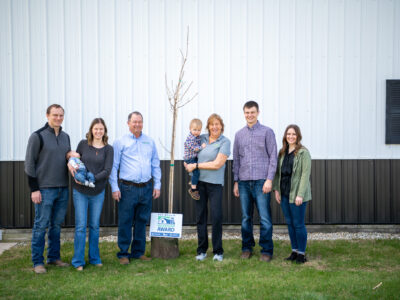
Des Moines County crop and livestock farmers are leaders in their community and Iowa agriculture
Iowa Secretary of Agriculture Mike Naig will present the Wergin Good Farm Neighbor Award to the Dan and Jan Keitzer family of Des Moines County on Friday, April 11. The...
Read More